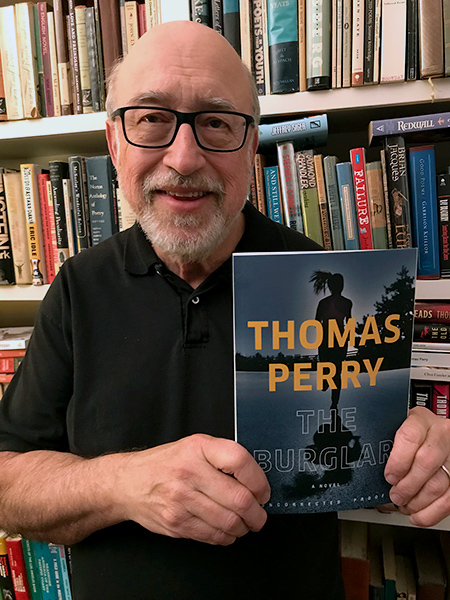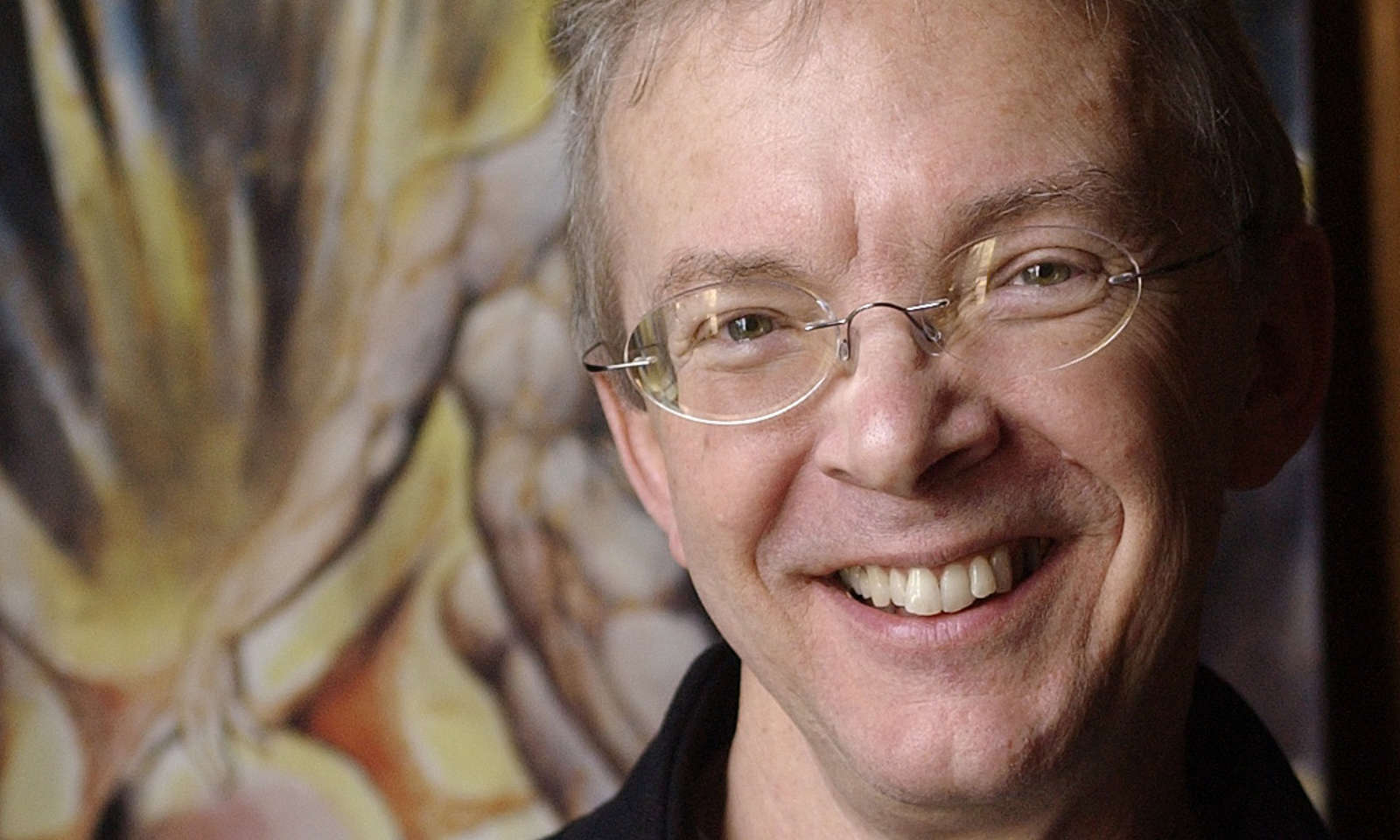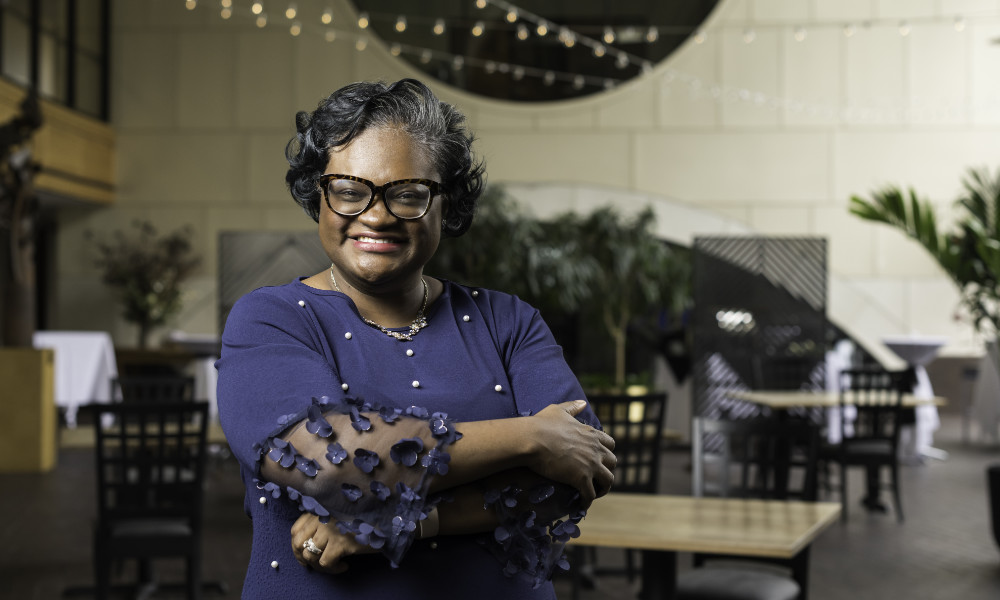
Thomas Perry ’74 (PhD) is the acclaimed author of 26 suspense novels. His latest, The Burglar (Grove Atlantic, 2019) follows The Bomb Maker, cited by New York Times crime fiction reviewer Marilyn Stasio as one of 2018’s best thrillers.
Praise for Perry extends from critics to masters of the genre. According to Stephen King, “there are probably only a half dozen suspense writers alive who can be depended upon to deliver high voltage shocks, vivid, sympathetic characters, and compelling narratives each time they publish. Thomas Perry is one of them.”
Now on a book tour, Perry took time out to talk about his latest book and his long career as a writer.
Tell us about Elle Stowell, the new protagonist you introduce in The Burglar.
Elle is a young woman who jogs through the richest neighborhoods of Los Angeles, looking like one of the daughters of the residents. Just a small, blond woman wearing a college T-shirt and a pair of running shoes that cost several hundred dollars. But she’s a fake. She cases the area to find houses where the owners are out of town so she can break in and rob them. Early one morning, she breaks into a house, reaches the master suite on the second floor, and finds three naked people on the bed with bullet holes in their foreheads. She also finds a video camera running. Did it record the murders, or her arrival? Very soon, she’ll be trying to find the killer before he finds her.
Where do you get your ideas?
Ideas for novels are still mysterious to me. They come from looking, listening, and remembering. There’s a blank page, and then the next minute there’s an image in your mind, and you begin to write about that image and tell its story.
You have a pretty scholarly background—an undergraduate degree from Cornell and a doctorate in English from Rochester. How did you get involved in the world of suspense novels?
I’ve written from the time I was in junior high. My parents were both teachers, my brother became a professor of anthropology, and my sister taught. I always assumed that’s how I would make a living. After a year as a commercial fisherman off Santa Barbara, I began working in universities and kept writing. In 1980, I finished a book called The Butcher’s Boy, about a professional killer. When the book won an Edgar Award from the Mystery Writers of America [for best first novel], I thought, “Oh, so I guess that must be what I am.”
How did The Butcher Boy get published?
I wrote it in two chunks during 1979 and 1980. I got a list of literary agents from an article I read in Atlantic and began sending my synopsis to them in alphabetical order. One of the Bs, Lurton Blassingame, replied, “Send the manuscript. I’ll read it.” A couple of weeks later, he said, “I like it. I’ll try to sell it.” And he did, to Suzanne Kirk at Scribner’s.
Do you have any literary idols?
I’d have to say William Faulkner. He was the subject of my doctoral dissertation at Rochester, and I continue to admire him for all the usual literary reasons.
One of your leading protagonists, Jane Whitefield, is a Native American woman. That seems pretty groundbreaking.
Good! Every writer hopes to be groundbreaking. Jane came out of a big failure of mine. I spent over a year working on my version of the great California earthquake novel and planted about 10 characters whose lives would be changed by the parts they played in the disaster. When I had 465 pages and wasn’t nearly finished, even my wife found it impossible to get through it. I decided instead to write about the area where I had been born and raised—Tonawanda, New York. I needed a character who could see the region in several ways at once, and Jane Whitefield began to develop. She’s a Seneca with ties to the Tonawanda reservation. I wanted her to be a woman, because I had not yet written a book with a female protagonist.
You’ve held a lot of jobs—as a park maintenance man, a factory laborer, and a commercial fisherman. Were any of your characters or plots inspired by these experiences?
I’m sure they were. Being a writer is like being a thief who steals lots of tiny items every day and brings them home in his pockets to a huge store room, where he hopes to reassemble them into a new new world of his own. Any real experience has an advantage, because a writer doesn’t just want to describe what exists. He wants to tell readers how it feels.




